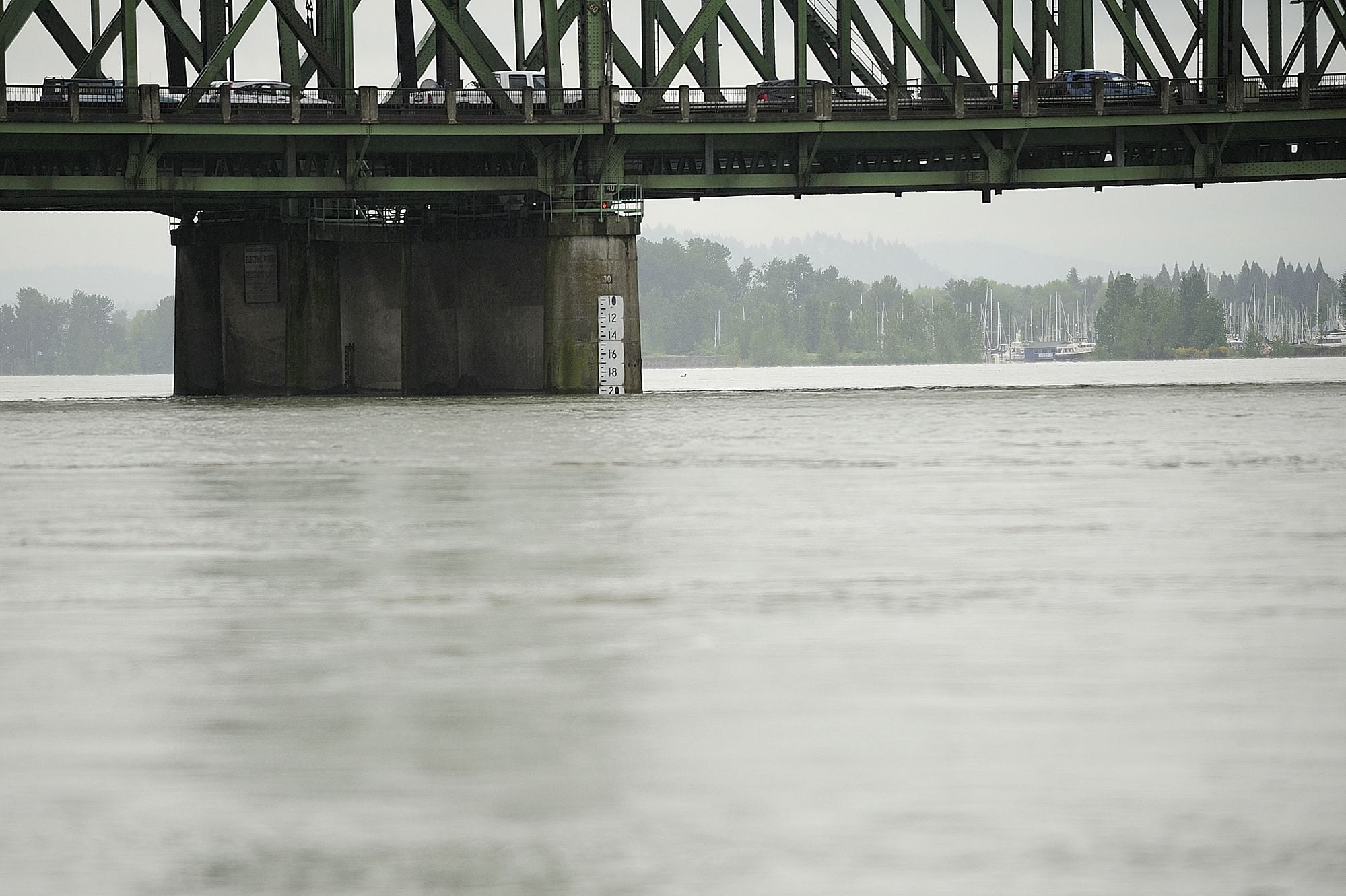With the Columbia River running a foot or more above flood stage for the past couple of days, Vancouver has entered an unusual situation as spring runoff proceeds.
“This is the highest river flow we’ve seen in quite awhile,” said Chuck Orwig, a hydrologist with the National Weather Service and Northwest River Forecast Center. “The river level today is substantially higher than since the years of 1996 and 1997.”
The river is considered to be at flood stage at 16 feet, and Vancouver’s level has been above that since Saturday. Tuesday evening’s reading was 17.3 feet. It’s expected to climb a little higher in the next few days, to 17.46 feet, and plateau around there for a few days, according to a NWS website.
Even at these elevated levels, there have been only minor flooding problems in Clark County.
A 911 dispatcher with Clark Regional Emergency Services Agency said Tuesday evening that he’d heard of no serious problems caused by the flooding so far.
Viewed another way, the river has been flowing at 510,000 cubic feet per second, Orwig said, and the average this time of year is 430,000 cubic feet per second.
For more perspective, the -Columbia flowed at more than 1 million cubic feet per second during the 1948 Vanport flood, Orwig said. That was before the present-day dam system was fully in place.
Nearby, the Willamette River is so high that the USS Shoup, a destroyer, is riding too high to fit under the Steel Bridge in Portland for the upcoming Rose Festival. A frigate, the USS Ingraham, is 20 feet shorter and will take the destroyer’s place.
Our current river levels have been caused mostly by heavy rains, on and off for the past several months, and snowfall in higher elevations, Orwig said.
What happens next depends on temperatures, Orwig said.
If a spell of warm weather arrives in the mountains in Montana, Wyoming and parts of Canada that drain into the Columbia, that could cause rapid snowmelt and raise river levels.
If heavy rains come at the same time, that could increase water levels higher.
“It’s up to Mother Nature how the melting and the rain play out for the next 30 to 45 days,” Orwig said.
In the Vancouver area, warm weather is expected this weekend, “Probably the warmest of the year so far,” said an official with the National Weather Service in Portland.
We’ll likely see highs in the upper 60s Friday, in the 80s Saturday and high 70s to 80 on Sunday, officials predict.
Operators of the dam system far up the Columbia can control big spring runoffs and will control them this year as well, Orwig said.



